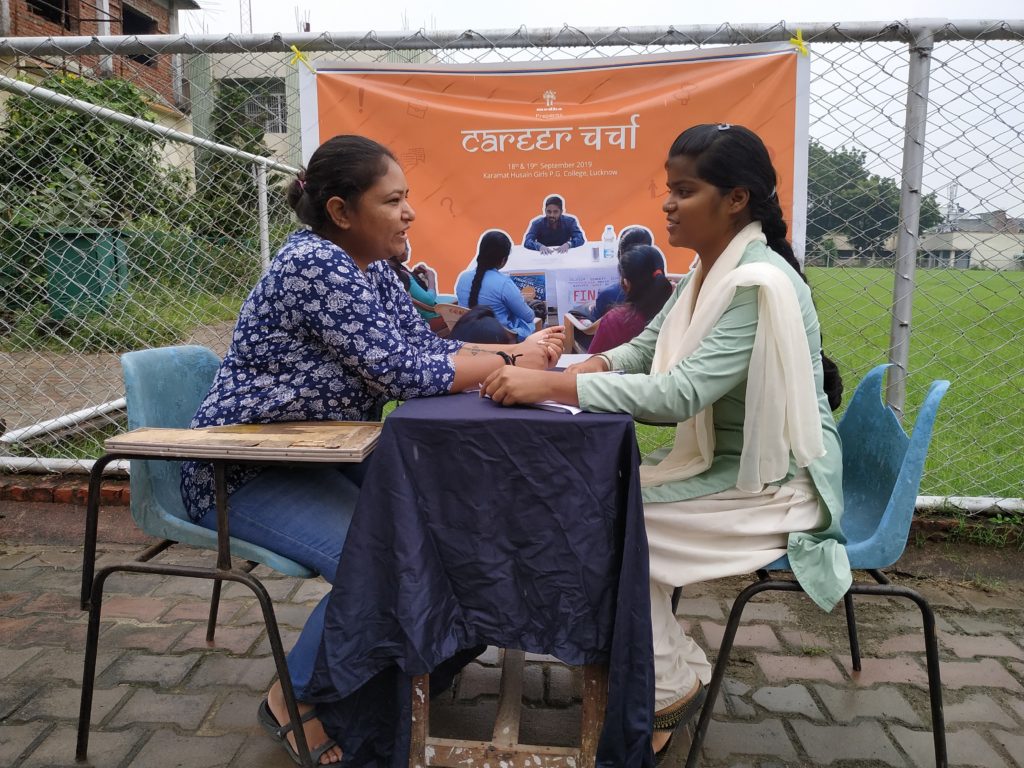Before 'Indian Matchmaking'
Nila (name changed), a 21-year-old woman, lives in Firozabad with her parents and 4 siblings. Her mother is a homemaker, while her father – working as a daily wage earner – used to make bangles for a living. He lost his work during COVID, but thankfully after that, the family put up a small shop to sell daily essentials.
Nila pursued a diploma in Mechanical Engineering from a Government Polytechnic close to her house. She loved her college life, made a lot of friends, and liked her professors’ teaching style. It was here that she chose to enroll in Medha’s career advancement program, equipping herself with skills like communication and teamwork.

Being the eldest of all children in her family, Nila has to take responsibility for her siblings. She shares how she understands the importance of contributing to the family economically and is actively looking for a placement opportunity through Medha. However, Nila’s mother has envisioned a different life for her daughter – she wants her to get married as soon as possible.
“I don’t want to get married so soon. My mother keeps nagging me to get married; she is a bit stubborn about it, but I really don’t want to, and I hope my parents understand this. This is why I really want to get a job in some other city – to move out of my house and earn some money. Then I can also study and appear for government exams on the side to get a good government job.“
According to the latest data for women aged 20 to 49-years-old in Uttar Pradesh, 45.1% got married at age 18. Another 18.4% of them got married at age 15. The most populous state in India also has the highest number of child brides, at 36 million. Such early marriages have adverse effects on young girls’ health and education outcomes. They create reproductive health issues, a lack of agency in personal decision-making, and an inability to participate in the workforce.

During the lockdown last year with schools closed, there was a sudden increase in the number of child marriages in UP. Families married their daughters off due to loss of livelihoods and poor economic conditions. Marrying one of their daughters off became a way to save money by not providing for an additional family member.
Young women like Nila wish to study further or pursue a career before thinking about marriage. However, financial insecurity and a mindset where girls are considered a “burden” often force them to give up on their dreams. Still, Nila has been able to stand her ground till now and is figuring out a way to pursue her dreams.
“You know how it feels like everything comes to an end after getting married, right? My mother says you can still study after getting married. But I know in our society, nobody around me will allow that once I get married. Then, I will just have to listen to my in-laws, my husband, and others – and do what they say.”